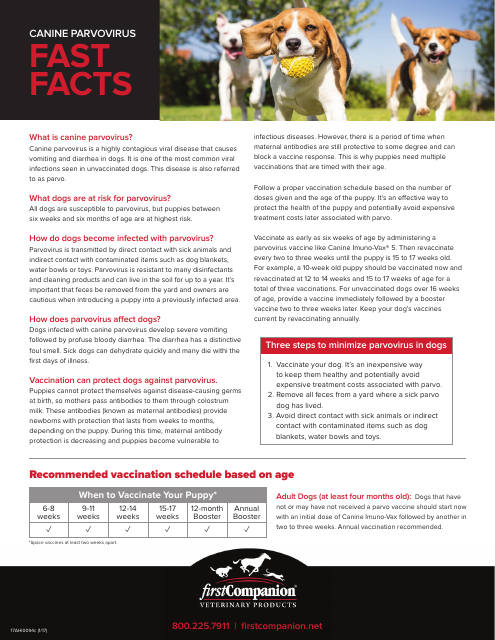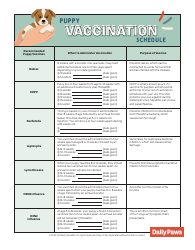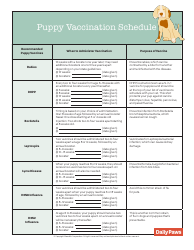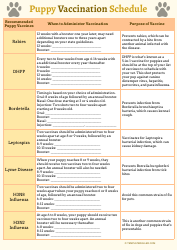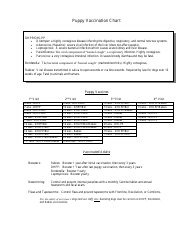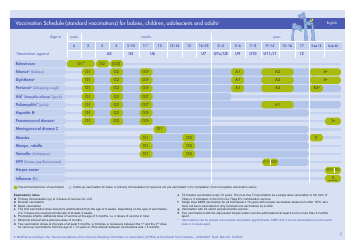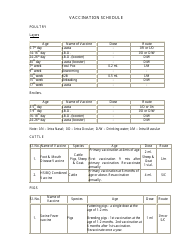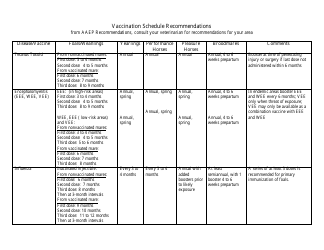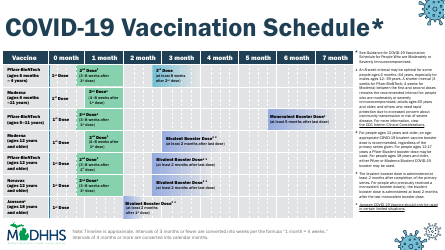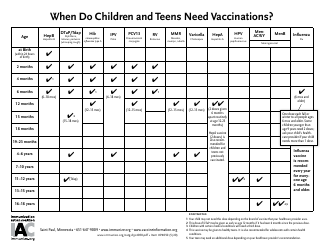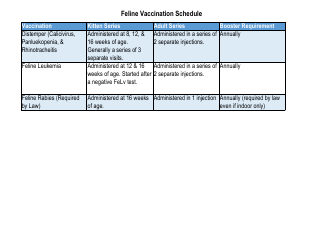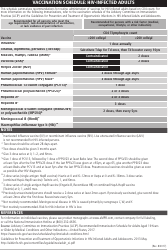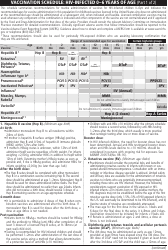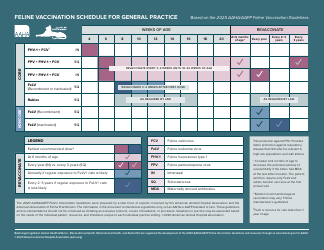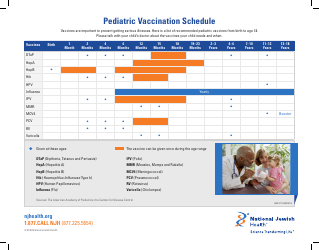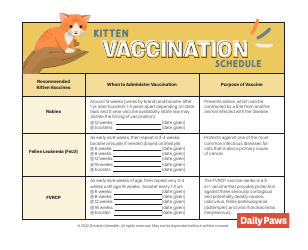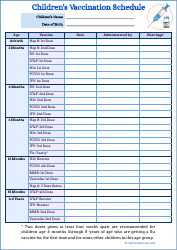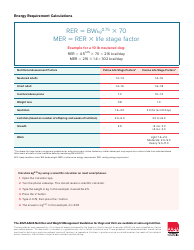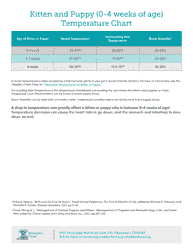Puppy Vaccination Schedule
The Puppy Vaccination Schedule is a systematic plan created for the timely administration of vaccines to puppies for their overall health and wellbeing. Vaccinations are a critical means to protect your puppy from various dangerous diseases, such as rabies, distemper, parvovirus, and many others. A typical schedule begins when a puppy is around 6-8 weeks old, with follow-up doses administered every 3-4 weeks until they are about 16 weeks old.
Please note, the vaccination schedule can vary depending on factors like the breed of the dog, its health status, and geographical risk factors. Therefore, it's always an excellent strategy to consult with a local vet to tailor a vaccination schedule that fits your puppy's specific needs.
Just like vaccines help humans resist potential fatal diseases, they are also crucial for pets. Hence, following a vaccination schedule for your puppy can be one of the most essential health care practices that you can follow for the long and healthy life of your pet.
Typically, pet owners are responsible for filing their puppy's vaccination schedule. This involves keeping track of administered vaccines and their dates, and usually, this information is provided and maintained by a licensed veterinarian. The vet can provide a document or vaccination card that records these details. You can store this document with your important paperwork or scan and save it digitally for easy access. Also, some countries or regions might require such documents for specific activities like traveling or boarding.
FAQ
Q: What is the typical puppy vaccination schedule in the US?
A: In the US, most puppies start their vaccines at 6-8 weeks of age and get another round every 2-4 weeks until they're 16 weeks old. Some vaccinations usually administered include rabies, distemper, leptospirosis, bordetella, and canine influenza.
Q: Do puppies need vaccines in Canada?
A: Yes, in Canada puppies are generally vaccinated for diseases like distemper, parvovirus, adenovirus and rabies. The standard schedule begins at 6-8 weeks, with boosters given every 2-4 weeks until they are 16 weeks old.
Q: What are the recommended vaccines for puppies in India?
A: In India, puppies are commonly vaccinated against distemper, parvovirus, hepatitis, leptospirosis, and rabies. The vaccinations begin at 6-8 weeks of age, with boosters typically given every 2-4 weeks until they're about 16 weeks old.
Q: What is the usual puppy vaccination schedule in Australia?
A: In Australia, puppies are usually vaccinated at 6-8 weeks, 10-12 weeks, and 14-16 weeks. The Australian Veterinary Association recommends core vaccines against canine parvovirus, canine distemper virus, canine adenovirus, and rabies.
Q: When should a puppy get its first vaccine?
A: A puppy should typically get its first vaccine between the age of 6 to 8 weeks.
Q: Why is a puppy vaccination schedule important?
A: A puppy vaccination schedule is important because it helps to protect them from potentially deadly diseases. Vaccinations strengthen the puppy's immune system against diseases that can be easily contracted in their early life.
Q: How often do puppies in the USA need to get vaccinated?
A: In the USA, after the initial series of puppy vaccinations, dogs usually need a booster vaccination annually or every 3 years, depending on the type of vaccine and the dog’s health conditions.
Q: What happens if you miss a puppy vaccination?
A: Missing a puppy vaccination could leave the puppy at risk of contracting the disease the vaccine is designed to protect against. Always consult with a vet if a vaccine schedule has been missed.
Q: What are the side effects of puppy vaccinations?
A: Some possible side effects of puppy vaccinations may include fever, sluggishness, appetite loss, vomiting, and diarrhea. While serious reactions are not common, they can occur, so it is better to monitor your puppy after a vaccination.
